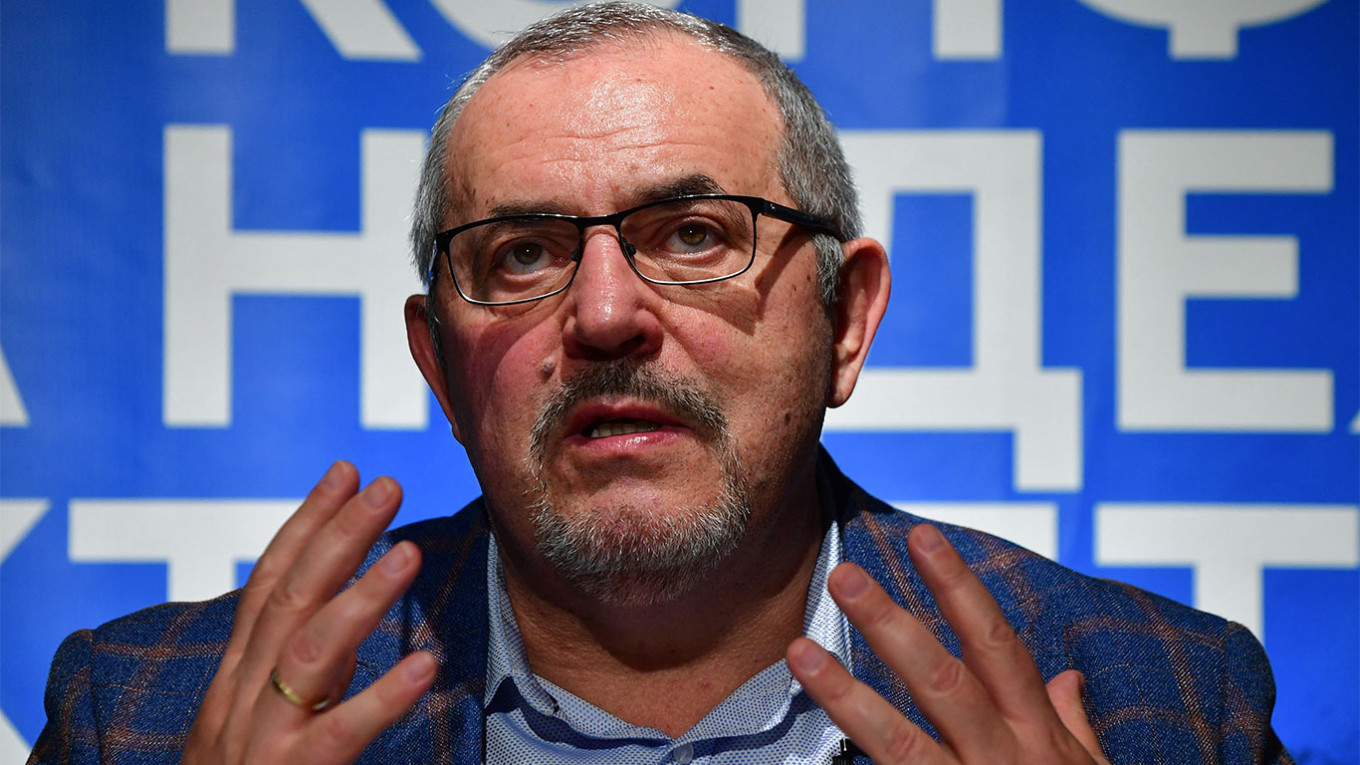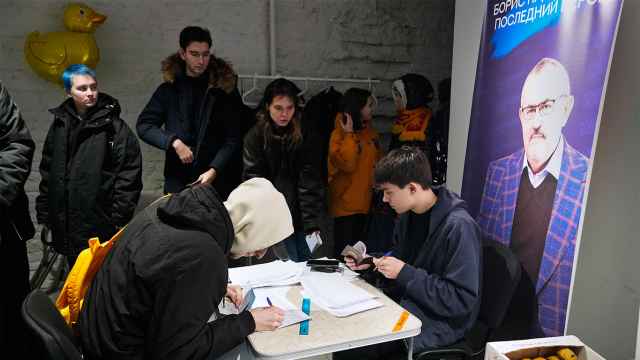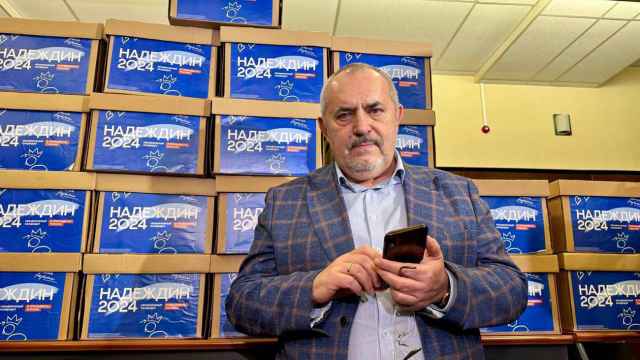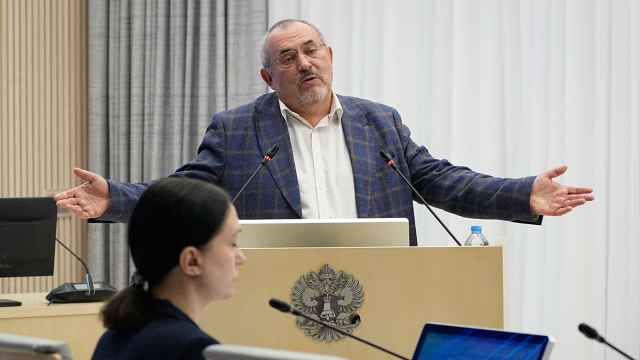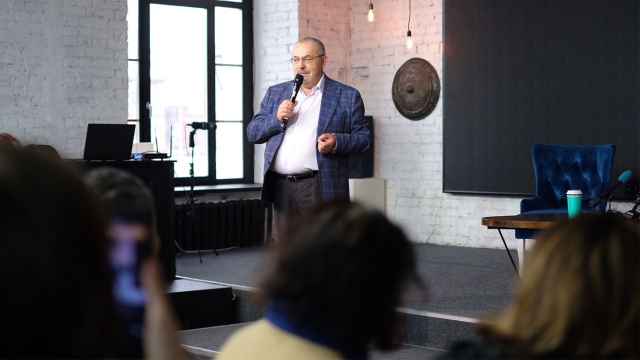MOSCOW — Will the Kremlin allow an anti-war candidate to run for the presidency? That's the main question for the thousands of Russians who have stood in long lines to show their support for presidential hopeful Boris Nadezhdin in recent days.
Despite an ongoing debate over whether or not Nadezhdin is a Kremlin-backed spoiler candidate, the politician has nonetheless kindled hope for some pro-peace Russians in an election that President Vladimir Putin is all but guaranteed to win.
“I hope for changes. I don't support what's happening in Russia,” Larisa, a resident of the Moscow region, told The Moscow Times while standing in line at Nadezhdin’s headquarters in the Russian capital. “I'm happy to see so many like-minded people are here.”
Nadezhdin, 60, a veteran politician running from the center-right Civic Initiative party, calls himself “a principled opponent" of Putin’s policies in his campaign manifesto.
Openly calling for ending the war against Kyiv, Nadezhdin promises to end mobilization, return Russian soldiers home and free political prisoners if elected. He has also described expanding abortion restrictions and the ban on the LGBTQ+ movement as “complete nonsense,” likening them to “the Middle Ages.”
In what some see as a new form of anti-war protest, thousands in Moscow and across the country are leaving their signatures for Nadezhdin — often after waiting in line outside his campaign offices for hours — to allow him to appear on the ballot in the March election.
Some of them told The Moscow Times that supporting the politician is their only means of expressing dissatisfaction with the invasion of Ukraine, while others said they see Nadezhdin as a real alternative to Putin.
“We want to see someone on the ballot who we’re not ashamed to vote for,” Ivan, a student, told The Moscow Times from the line in Moscow.
“I believe that Nadezhdin has enough public support — whether he will be allowed to take part in the elections is another question,” he added.
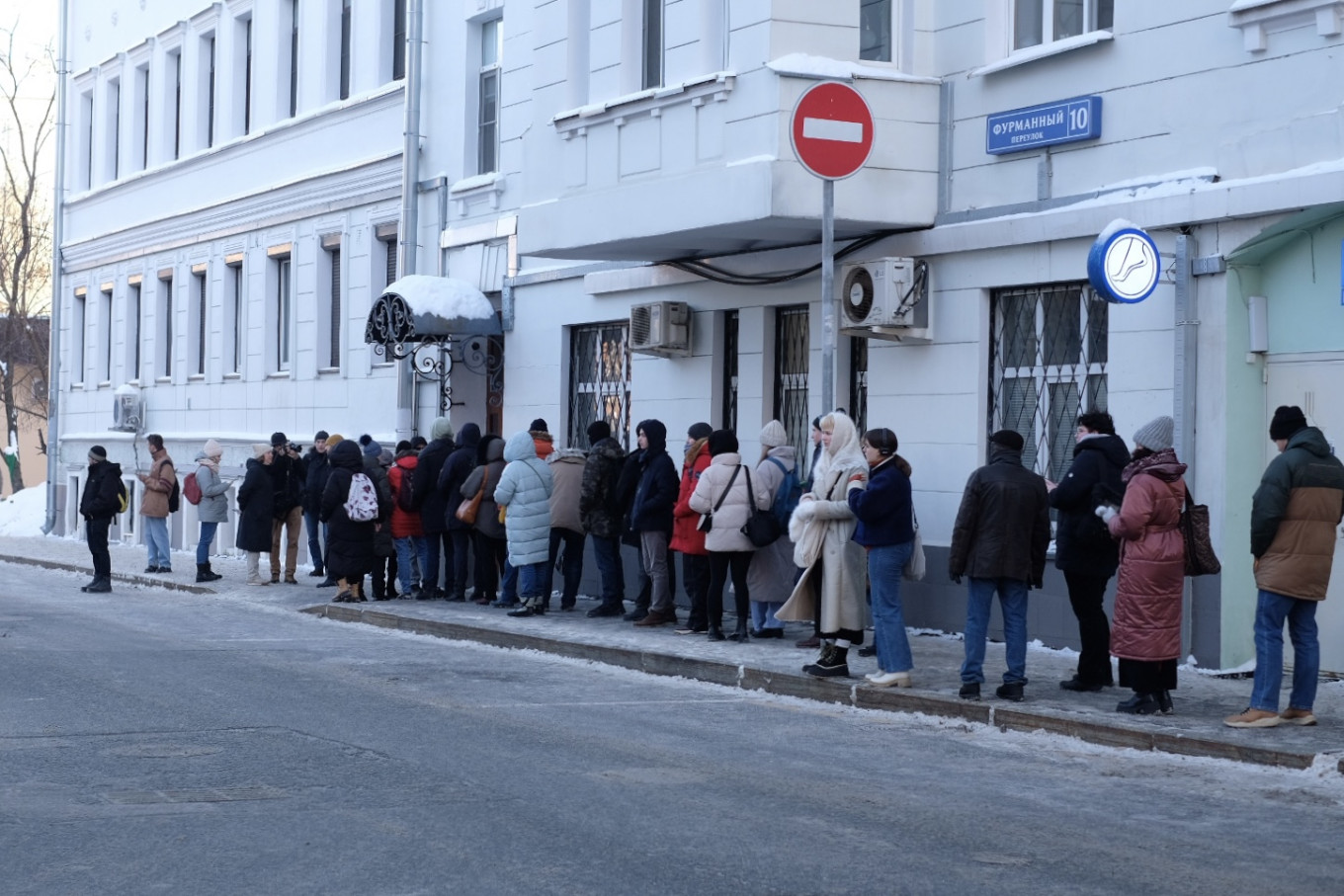
On his website, Nadezhdin describes himself as “a physicist, entrepreneur, lawyer and politician” and someone who wants to lift Russia out of “the rut of authoritarianism and militarization.”
Starting his political career in the 1990s as a city legislator in the Moscow region, he was elected to the federal State Duma in 1999 as a member of the Union of Right Forces (SPS) party. That decade, he worked as an adviser for opposition leader and then-Deputy Prime Minister Boris Nemtsov and then as an aide to former Prime Minister Sergei Kiriyenko — the Kremlin’s current domestic policy mastermind.
Eight years after serving as an election observer on behalf of Putin’s 2012 presidential campaign and a confidant of Kremlin-loyal candidate Sergei Mironov, Nadezhdin spoke out against controversial constitutional amendments that gave Putin the ability to stay in power until 2036.
Highlighting in his campaign that he is against “violence that becomes acceptable and commonplace” during wartime, Nadezhdin met with wives and mothers of mobilized Russian soldiers this month, becoming one of the few political figures to do so.
The presidential hopeful also drew support from families of mobilized soldiers in the Voronezh region neighboring Ukraine, according to local campaign coordinator Pavel Sychev.
The soldier’s families “posted an appeal on their social networks asking to come to our headquarters,” Sychev told The Moscow Times.
Far-flung support
Long lines of Russians supporting Nadezhdin were seen across the country, including in cities like St. Petersburg, Saratov, Krasnodar, Yekaterinburg, Voronezh and Ufa.
In the Far East republic of Sakha (Yakutia), people braved temperatures of minus 34 degrees Celsius to leave their signatures.
Lines of Nadezhdin supporters were also seen in popular hubs for Russian wartime emigres like Armenia, Georgia, Serbia, Israel, Germany, Spain and others.
The long lines for Nadezhdin indicate that there is still a significant number of civically engaged people in Russia, experts said.
“People who do not support the authorities would like a public political space in which they can express their disagreement — in modern [Russia], there is no such space,” political analyst Ilya Grashenkov told The Moscow Times.
“Collecting signatures for Nadezhdin has become a kind of display of disobedience that one can safely indulge in.”
Under Russian election law, a presidential hopeful running from a party not represented in parliament must collect 100,000 signatures of endorsement, with no more than 2,500 from each of Russia's regions.
Though Nadezhdin hit the milestone of 100,000 signatures needed for the Central Election Commission’s (CEC) review on Tuesday, his campaign stressed that he would aim for 150,000 to avoid any mistakes in the paperwork and surpass the regional quota.
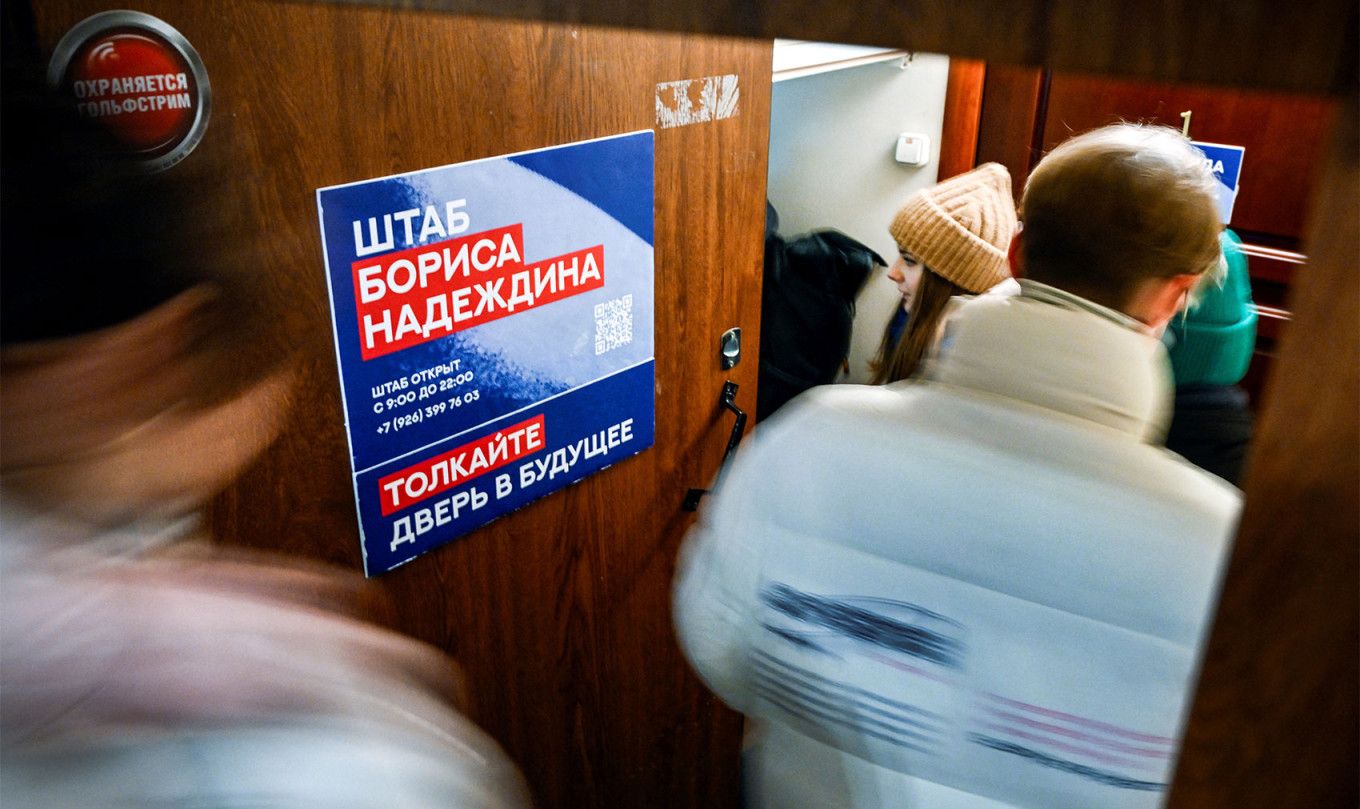
Several Russian public figures, including politician Maxim Katz, exiled Kremlin critic Mikhail Khodorkovsky and allies of jailed opposition figure Alexei Navalny, have declared their support for Nadezhdin.
Yekaterina Duntsova, a former city councilor whose presidential bid was rejected due to alleged document errors last month, urged Russians to leave signatures for the politician to give “the only opportunity for independent observers” to be present at polling stations.
Presidential candidate Vladislav Davankov of the New People party also left his signature on Monday in support of his rival Nadezhdin — a move some experts said could be a tactic to lure liberal voters to his campaign in the event that the CEC rejects Nadezhdin’s election bid.
Skeptics and believers
Yet critics, arguing that Russia’s entire election process is a simulation of democracy, accuse Nadezhdin of being a Kremlin stooge whose presence creates the illusion of competition.
In Voronezh, “half of my friends from the opposition crowd refused to leave signatures for Nadezhdin, alleging that he was a ‘Kremlin project’,” said Nadezhdin coordinator Sychev.
Alexander Kynev, a political scientist and expert on regional politics who knows Nadezhdin personally, rejected the notion that he is following orders from the Kremlin.
“He is an absolutely independent political figure with his own views. I think he made his own decision to run [for the presidency],” Kynev told The Moscow Times.
“Perhaps he consulted with some people in power, but certainly no one from above asked him to run in the elections,” Kynev said. “However, for those who believe in conspiracy theories or want to justify their inaction and political impotence, it is easier to say that Nadezhdin is just a figurehead.”
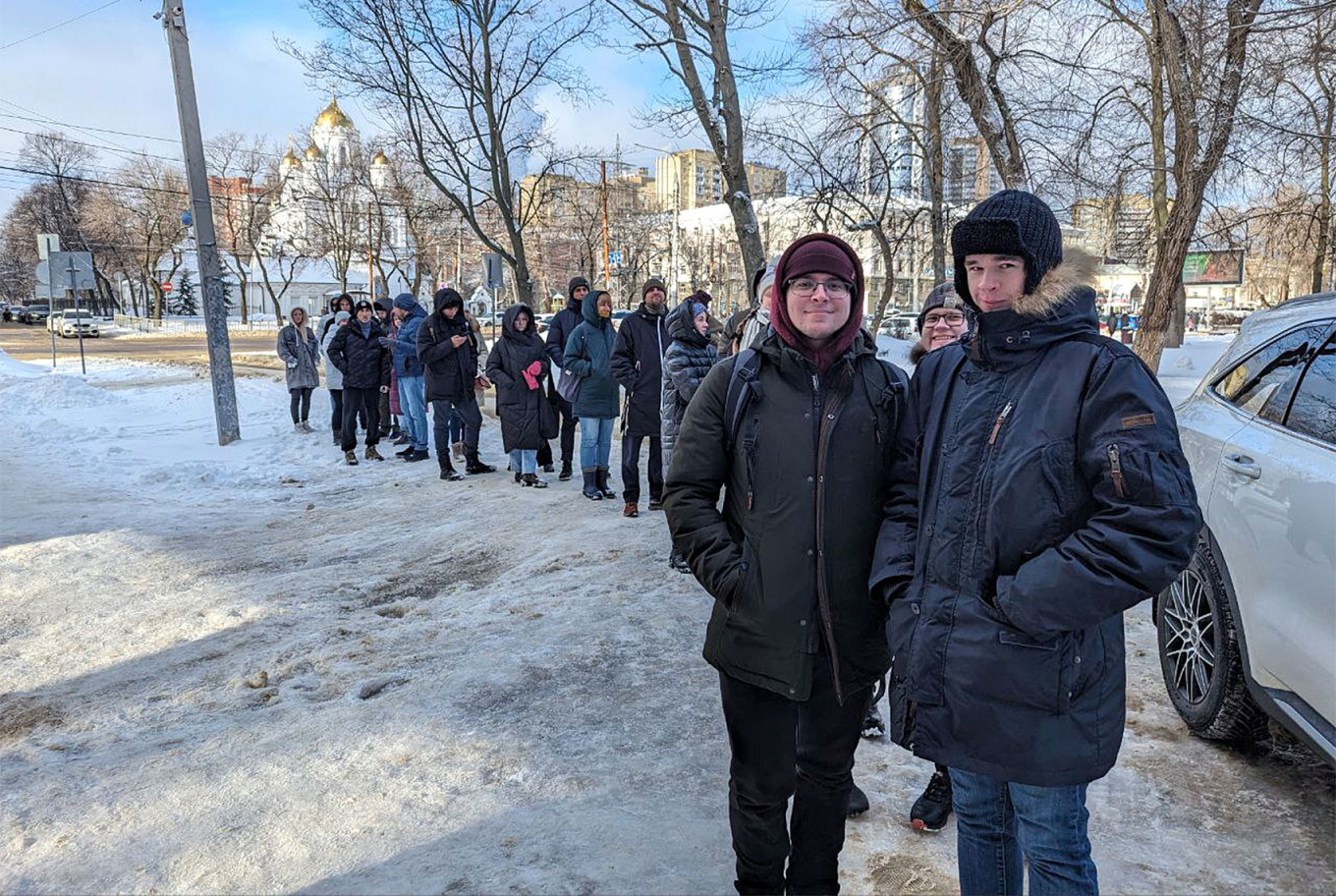
The independent news outlet Vyorstka reported this month that the CEC will likely reject Nadezhdin’s registration due to his anti-war stance and opposition to Putin.
Nadezhdin “was a candidate agreed upon with the Kremlin at first,” but he lost this support after he came out not only against the war but also “against Vladimir Putin,” Vyortska reported, citing unidentified sources in the presidential administration.
Candidates can be barred from registering if they fail to collect enough signatures, if the majority of signatures are deemed unreliable by government experts or if most signatures are declared invalid, often due to errors in passport data, said Stanislav Andreychuk, a board member at Golos, Russia’s main independent election watchdog.
"If the first case is straightforward, the other two cases leave ample room for arbitrariness, especially because challenging the conclusion of experts is almost impossible," Andreychuk said.
Months before Putin announced his bid for the presidency, his spokesman Dmitry Peskov said that the Kremlin had no doubts about whether the incumbent president would win. Putin, who had to collect 300,000 signatures as a “self-nominated” candidate, has already delivered his paperwork to the CEC for review.
Candidates from political parties represented in parliament — like Davankov, Leonid Slutsky of the nationalist Liberal Democratic Party and Nikolai Kharitonov of the Communist Party — do not need to collect signatures, and the CEC has already approved them to run for the presidency.
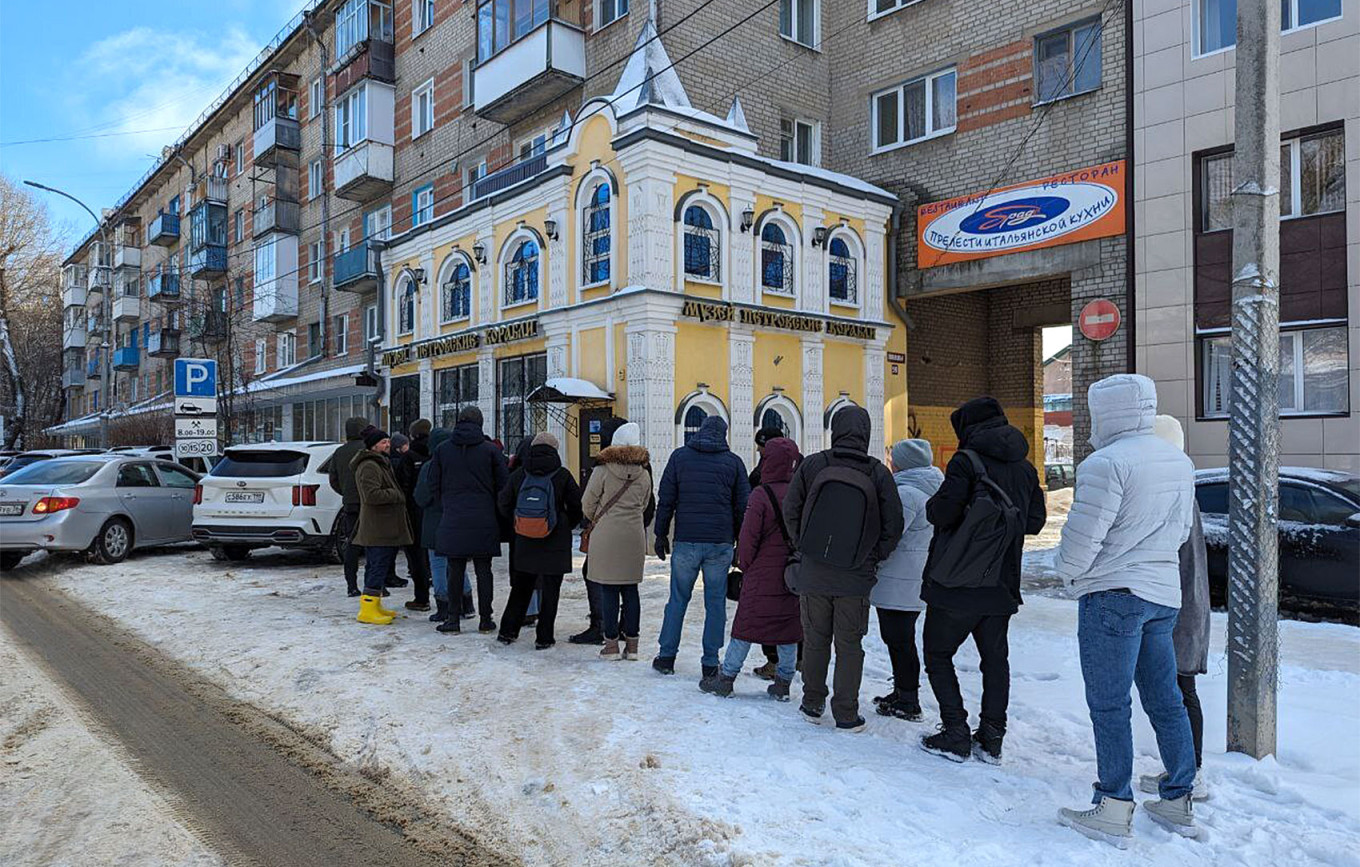
According to Grashenkov, the Kremlin is yet to decide if it “wants to register Nadezhdin or not” amid the show of visible support from the public.
“[The Kremlin] has some time to consider what is better — allowing Nadezhdin to run in the elections and demonstrating that the anti-war candidate only gathers a small percentage of votes, or keeping him out of the race and facing accusations that the authorities feared the anti-war candidate might garner significant support,” Grashenkov told The Moscow Times.
However, for some Nadezhdin supporters, the chance to express their dissent toward their state’s policies appears to be as significant as the opportunity to vote for Nadezhdin.
“Even if Nadezhdin does not get on the ballot, the [public support] seems very important to me,” said Vitaly Kotsiuba, 25, who left his signature for Nadezhdin in the city of Valencia, Spain.
“It is important that people see how there are many like-minded people who are also against the war.”
Another reporter for The Moscow Times contributed reporting from Voronezh.
A Message from The Moscow Times:
Dear readers,
We are facing unprecedented challenges. Russia's Prosecutor General's Office has designated The Moscow Times as an "undesirable" organization, criminalizing our work and putting our staff at risk of prosecution. This follows our earlier unjust labeling as a "foreign agent."
These actions are direct attempts to silence independent journalism in Russia. The authorities claim our work "discredits the decisions of the Russian leadership." We see things differently: we strive to provide accurate, unbiased reporting on Russia.
We, the journalists of The Moscow Times, refuse to be silenced. But to continue our work, we need your help.
Your support, no matter how small, makes a world of difference. If you can, please support us monthly starting from just $2. It's quick to set up, and every contribution makes a significant impact.
By supporting The Moscow Times, you're defending open, independent journalism in the face of repression. Thank you for standing with us.
Remind me later.



